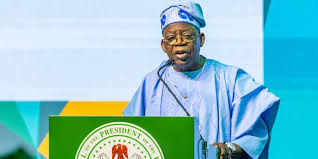The Nigerian stock market is experiencing its most remarkable growth since the country’s return to democracy in 1999, recording a 136% gain in the All-Share Index (ASI) under President Bola Ahmed Tinubu’s administration. According to an analysis , the ASI, which was 55,769.28 points when President Tinubu assumed office on May 29, 2023, has climbed to around 131,000 points by July 2025, marking an unprecedented achievement in Nigeria’s capital market history.
This growth rate has surpassed the market performances recorded during the same periods of previous administrations. Under former President Muhammadu Buhari, the stock market gained only 4.47% by 2016. During Goodluck Jonathan’s tenure, it was up 47% by June 2013. Under Umaru Musa Yar’Adua, the market experienced a significant crash, losing 49%. The closest comparison is the Olusegun Obasanjo era, when the market posted a 115% gain by July 2001.
Similarly, the Nigerian Exchange (NGX) market capitalization has grown from about N30 trillion in May 2023 to over N75 trillion, an increase of N45 trillion in value within two years. Though the gain appears lower when adjusted for naira depreciation, the achievement remains notable against the backdrop of Nigeria’s broader economic challenges.
The Tinubu administration’s economic reforms have been a driving force behind this impressive rally. Key among the policies implemented are the removal of fuel subsidy and the unification of the foreign exchange rate. These bold steps have aimed at stabilizing the country’s public finances and restoring investor confidence, despite fueling inflation and impacting household incomes.
Other factors contributing to the stock market’s surge include the Central Bank of Nigeria’s (CBN) ongoing bank recapitalization efforts. This move is set to raise over N5 trillion by 2026, boosting valuations in the banking sector and attracting fresh capital inflows. In addition, higher FAAC allocations following the removal of subsidies have increased liquidity in the economy.
With limited opportunities for speculative forex trading, many investors are redirecting their funds to equities and other financial assets offering higher yields. The current high interest rate environment, with the Monetary Policy Rate (MPR) at 27.5%, has further spurred interest in the stock market and fixed-income securities. Listed companies have also reported improved profitability, with many firms growing their revenues despite rising inflation and weakened consumer purchasing power.
Local investors, particularly institutional players and retail traders, have played a major role in sustaining the market rally. In the first quarter of 2025, domestic transactions on the NGX totaled N1.418 trillion, accounting for 63.63% of the total transaction value of N2.23 trillion. Between May 2023 and May 2025, local investors accounted for about N9.375 trillion in equity trades, representing 81% of the total market transactions. In contrast, foreign investors contributed N2.159 trillion in the same period, showing that domestic confidence in the market has grown significantly.
Sectors benefiting the most from this bullish trend include banking, agriculture, industrials, and oil & gas. The banking sector alone has added over N7 trillion in market capitalization between 2023 and 2025, with notable contributions from GTCO and Zenith Bank, which gained N2 trillion and N1.7 trillion respectively.
The ICT sector has also seen major growth, with MTN Nigeria adding over N3 trillion in value and Airtel Africa growing by about N1.8 trillion. Recent listings have further bolstered market sentiment. For instance, Aradel Holdings’ listing added over N2 trillion to the NGX, and anticipated listings like Dangote Fertilizer and the proposed NNPC IPO are expected to drive further growth.
As of mid-July 2025, Nigerian equities are up 27.84% year-to-date, and analysts predict that the market could close July with double-digit gains. If this bullish momentum continues, President Tinubu may be remembered as the most impactful president for the Nigerian stock market.
However, while the stock market is thriving, many Nigerians are still grappling with the realities of inflation, unemployment, and a high cost of living. The gains on the trading floor have yet to translate into widespread economic relief for the average citizen. For many, the true measure of the administration’s success will depend on improvements in daily living conditions, employment opportunities, and access to essential services.
Nonetheless, for investors and analysts watching the market, the data is clear: Nigerian stocks are on a historic run under the Tinubu administration, marking a significant era for the country’s financial landscape.
